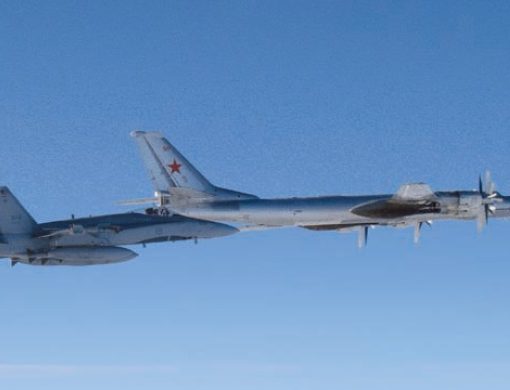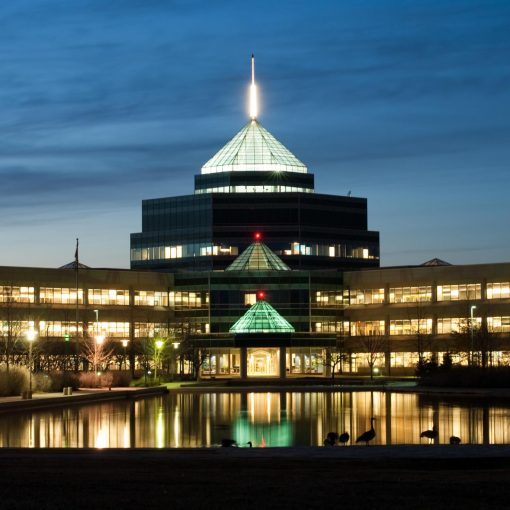[Moderator’s Note: This article was published previously in the Halifax ChronicleHerald. It is reprinted here with the permission of the author.]
Vice-Admiral Dean McFadden, retired commander of the Royal Canadian Navy, once described the world’s oceans as anything but peaceful and placid — more like “the wild west.” He spoke of maritime piracy, human trafficking and the global drug trade, and how these threats to Canadian security are carried out on the world’s oceans.
His concerns are echoed by allied naval leaders. The U.S. Navy’s deputy commander of U.S. Fleet Forces Command, Vice-Admiral David H. Buss, warns that “we will continue to deal with close-in security challenges,” such as counter-piracy and counter terrorism. He described the U.S. Navy’s “70-80-90 paradigm” - that 70 per cent of the world’s surface is covered by water, 80 per cent of the world’s population lives within 100 miles (160 km) of the coastline, and 90 per cent of the world’s commerce travels on the ocean. “That is something that is probably less understood around the world by those who may not be part of the maritime community.”
Both Vice-Admiral Buss and Royal Navy Commodore Steve Chick caution that a maritime event as significant as 9-11 is an unremitting possibility. “Most of our ports are surrounded by long-established communities which could be vulnerable to this kind of threat. Increasing tourism and cruise liner industries are using our oceans significantly more than we ever used to,” Commodore Chick noted.
The danger to those who use the oceans recreationally is underscored by events that go back as far as Oct. 7, 1985, when four Palestine Liberation Front members hijacked the cruise ship Achille Lauro off the Egyptian coast. They singled out 69-year-old retired American businessman Leon Klinghoffer, shot him and threw his body overboard.
The 50,000 merchant ships registered in more than 150 nations are staffed by more than a million mariners. New Zealand’s Vero Marine Insurance estimates that between five and six million containers are in transit at any given time, and the respected journal The Economist warned in 2002 that any one of them could deliver “an instrument of death.”
“When you see the significant volume of trade, you see some of these container vessels, gas carriers and car carriers that are plying their way backwards and forwards between our countries, it is very easy to conceal something,” Commodore Chick cautions. “That’s why we need robust port security facilities and cargo loaded in a more secure manner.”
Any significant disruption to international commerce will have profound consequences. The inter-agency Round Table of International Shipping Associations cautions that with an interruption of maritime commerce, “half the world would starve and the other half would freeze!”
Maritime threats to Canada are a stark reality and can take any number of forms. A 2003 United Nations report estimated the global illegal drug trade at $321.6 billion US, against a global GDP of $36 trillion US. Equally disturbing is the violence it provokes.
Illegal migration is another concern. The 2009 arrival of 76 Sri Lankan Tamil men aboard the Ocean Lady in Vancouver underscored what desperate people will do to improve their lives and how unscrupulous people will exploit them for profit.
Canada could also be a target for terrorism. In 2002, The Economist wrote that a suspected al-Qaida terrorist from Egypt provided a worrisome lesson when he was discovered hiding in a sea container in the southern Italian port of Gioia Tauro. His voyage would have taken him to Halifax.
On June 4 to 7, issues concerning global maritime security were the focus of an international conference at Halifax’s Westin Hotel, co-sponsored by NATO’s Combined Joint Operations from the Sea Centre of Excellence and the Centre of Excellence for Operations in Confined and Shallow Waters. This forum brought together marine security specialists and seafarers from the military and business sectors to discuss issues of global maritime security.
Dalhousie University’s Centre for Foreign Policy Studies provided intellectual support and leading conference discussions.
The Canadian host for the talks is Rear-Admiral David Gardam, Commander of the RCN’s Atlantic Formation. He notes, “There are very good reasons for this maritime security conference to be held in Halifax. We are world-class practitioners in the maritime security field and work in a very integrated and seamless manner with our federal security partners. By doing so, we form a common picture of what is happening in our waters, the approaches to Atlantic Canada and increasingly into the Arctic.”



